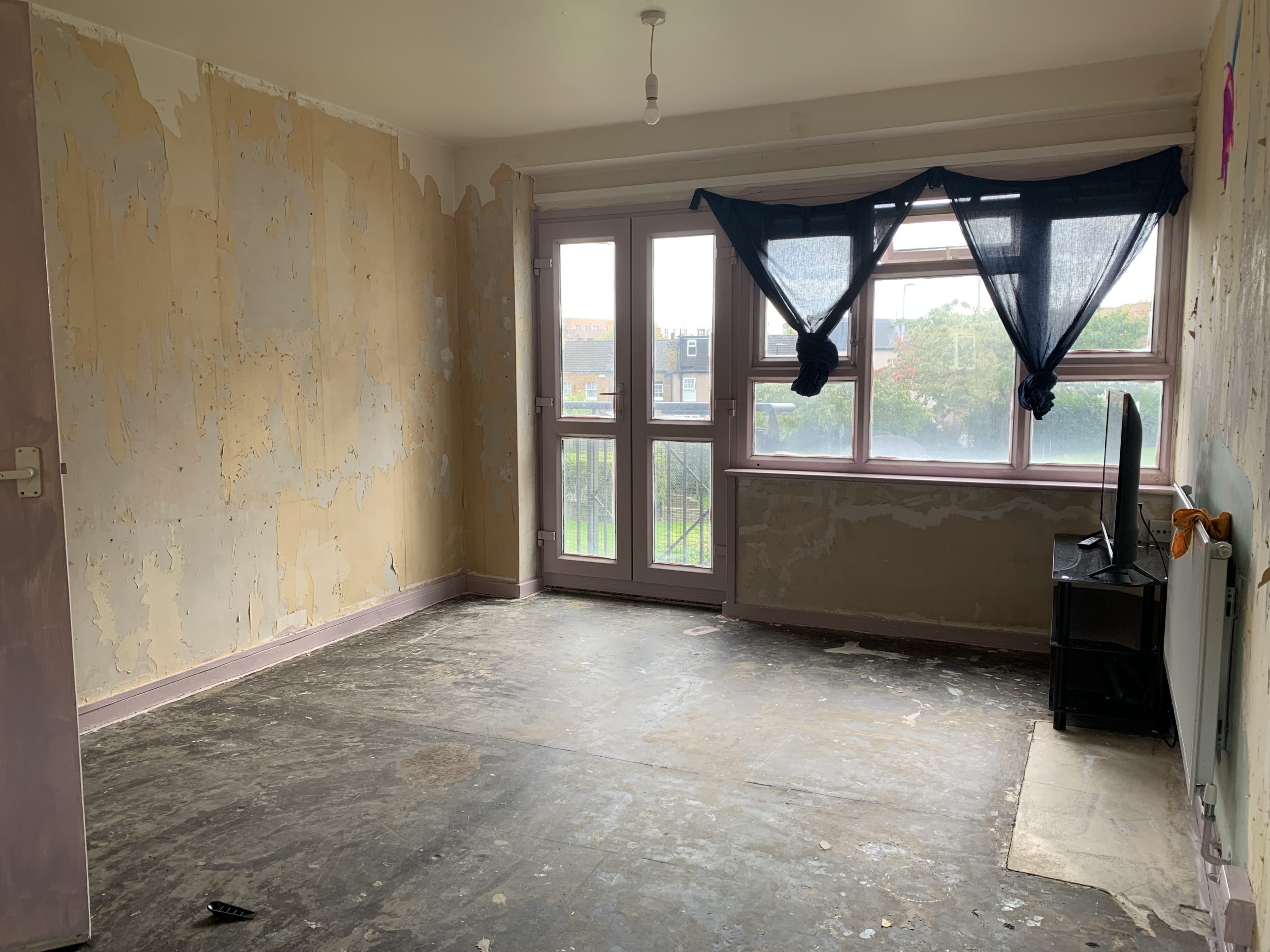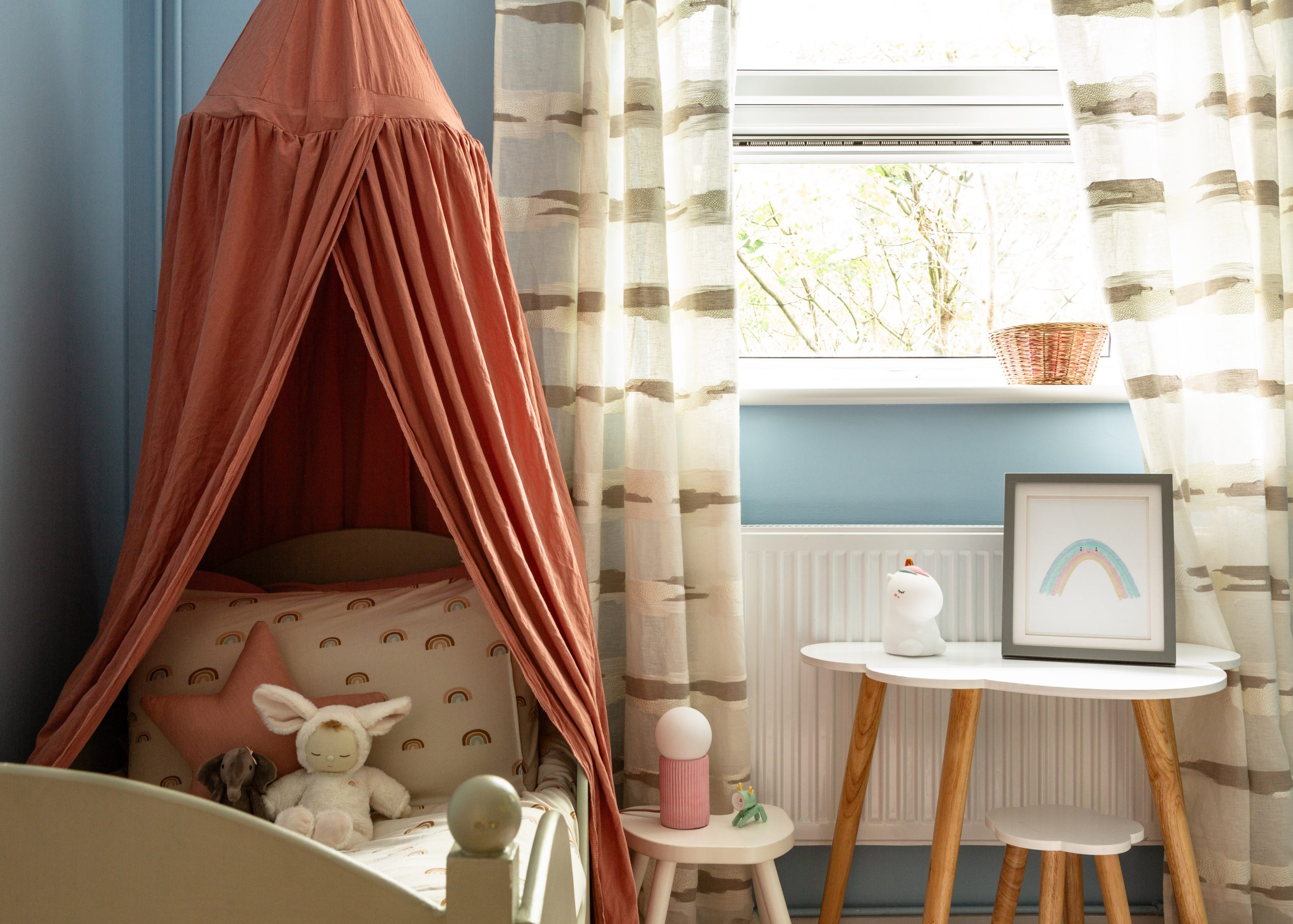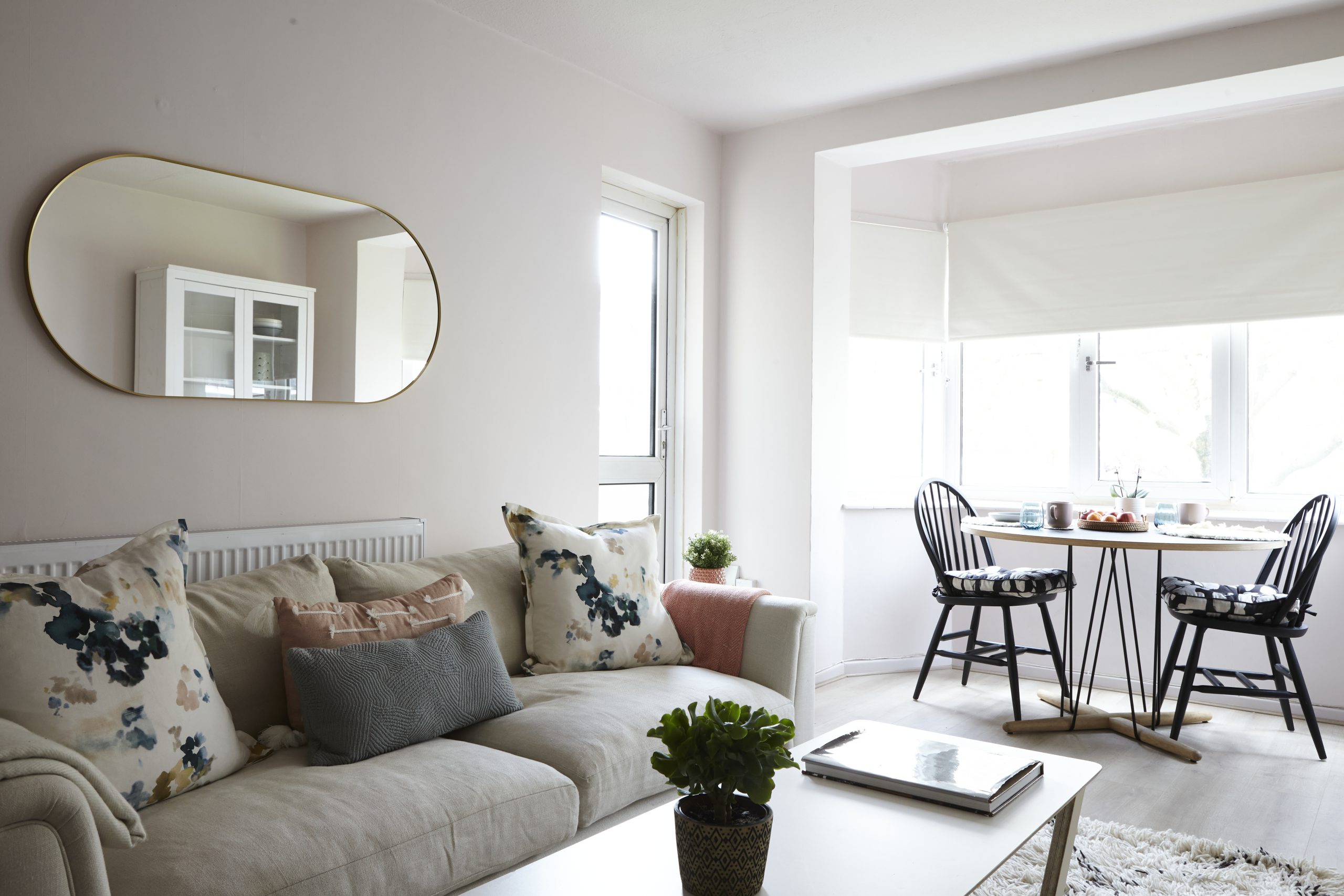London based charity Furnishing Futures collaborates with interior designers and brands to help create beautiful and safe homes for women and children fleeing domestic abuse.
In London, less than 2% of social housing comes with any kind of furnishings, and some can even lack basics like flooring. Furnishing Futures partners with specialist domestic abuse organisations, women’s refuges, baby banks and food banks, and with some of the UK’s best-known interior brands, stylists and designers, saving beautifully designed objects from landfill to create beautiful, well designed, trauma-informed homes.
Founder of Furnishing Futures, Emily Wheeler, is a trained interior designer and a registered social worker, whose extensive work experience across both sectors has given her a unique viewpoint.
“I spent nearly twenty years in frontline child protection social work, across some of the most deprived areas of London,” says Emily. “By the time I left my job to do [Furnishing Futures] full time, I was chairing multi-agency child protection conferences, meeting a lot of families who could not afford to buy basic items for their children due to austerity or who were being placed in unsuitable, unfurnished social housing.
“I met several women who were supported to leave life-threatening violent relationships, only to find themselves in a completely empty council flat that didn’t even have flooring, window coverings or a fridge or oven, let alone a bed for their child. These women had left everything behind, often also losing access to their finances. One woman chose to return to her abuser as she couldn’t look after her child in those conditions and it was then I knew something had to change.”

A few years previous to setting up the charity, Emily had taken a career break from social work and trained as an interior designer. She spent five years working as a designer, interiors writer and stylist for notable interiors publications and wrote the book ‘Creative Living London’.
“I saw how much waste there is in the industry from residential design to press samples and events, and yet there were so many people living with absolutely nothing,” she explains. “I knew there had to be a way to connect the two issues of sustainability in the industry and furniture poverty.
“I also knew from my conversations with women who had been rehoused in these conditions that something different was needed. These women needed to feel valued and safe, they needed to feel they had a safe home, not just a second-hand sofa or bed. I knew that these families would struggle to afford even low-cost items, that tired second hand furniture would not raise their self-esteem and show them that they mattered, and that was where the idea for Furnishing Futures comes from.”

The charity provide everything a woman needs to start again including flooring, furniture, beds and bedding, cushions, art, kitchenware and white goods. Furnishing Futures create these beautiful bespoke healing homes at no cost to their beneficiaries to support their recovery, reduce poverty and increase their safety.
Their new #NoPlaceLikeHome campaign is a rallying cry to those in the interiors industry to stand up and make a change, and includes a film voiced by actor Tamzin Outhwaite.
Here, Emily shares how interior designers and interior brands can get involved, supporting both families in need and a more circular economy.
What is Furnishing Futures mission?
Our ultimate goal is to ensure no one has to live without essential furniture and that no useable piece of furniture ends up in landfill.

How can interior designers and interior brands support the work that you do?
We always need donations of good quality furniture and accessories in new or excellent condition that are suitable for small homes with children. If we cannot use the items in a home, we sometimes sell them at our fundraising warehouse sales to raise vital funds.
We also welcome opportunities for fundraising and ways to raise awareness about this issue, such as sharing our work on social media or telling friends and colleagues about us.
Furnishing Futures also helps to create a more circular economy – can you tell us a bit about this.
Supporting sustainability in the industry is a huge part of our mission and Furnishing Futures partners with the interior design industry, which donates all the beautiful furnishings that go into the healing homes we create. There is so much waste – items that are new or in perfect condition – and yet companies have to dispose of them because it is too costly to store or sell them. Furniture used once for events, press samples or excess stock for example. That’s where we come in – we can use those beautiful products and protect the environment, while creating powerful social impact.
Are there any designers or brands that you are currently collaborating with?
Yes, we work closely with Soho House and Soho Home who have been incredibly generous and supportive as well as Anthropologie, Ruggable, House of Hackney, DFS and Laura Ashley just to name a few. We also receive a lot of amazing donations from interior design studios such as Suna, Resonate and specialist such as The Furniture Practice.
We have also just finished transforming four women’s refuges with Clare Gaskin, Laura Hammett, House Nine Design, Rebecca Wakefield and House Nine Design.

What has been the reaction so far from the interiors community?
Absolutely incredible. It is such a warm and caring industry and often people want to be more sustainable or support work like ours but they don’t know where to go. I think we offer brands and designers a powerful way of creating social and environmental change that is immediate and tangible, and so the response has been amazing. We couldn’t do what we do without the generosity of the individuals and companies who donate the furnishings and funds to make our work possible, so we are incredibly grateful.
What is the biggest challenge for Furnishing Futures?
Not having the resources as a small new charity to meet the enormous need for our support. More than 14 million people in the UK are living without essential items of furniture, and nearly five million children don’t have their own bed to sleep in. We are growing fast and working hard to scale up but the need is overwhelming.
Thousands of women are moved into empty social housing without the bare essentials every year after escaping domestic abuse. As a small charity our biggest challenge is keeping up with the demand for our help, whilst keeping the funds coming in so we can keep going. We also need a bigger warehouse and more space across London so we can support more women and children and save more furniture.
What are you focused on for the rest of 2024?
Raising awareness of the plight of women and children re-housed in these conditions and working hard to support more families. We also want to work towards creating some systemic change so that no one is put in this situation in the future.
What does the charity aspire to look like in 5 years time?
In five years’ time we hope to be supporting women across the whole of London and starting to open branches across the country. We would also love to have changed the system, so that fewer people experience the indignity of living without essential items that most of us take for granted.
Visit the Furnishing Futures website for more ways to collaborate.
www.furnishingfutures.org | IG: @furnishingfutures
